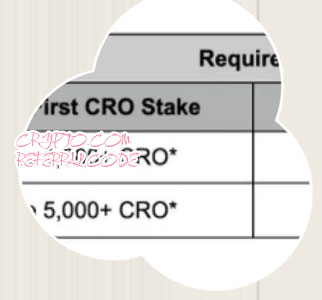- What's the price of bitcoin
- Bit price
- Baby bitcoin where to buy
- How does bitcoin make money
- Cryptocom transfer to wallet
- When will all btc be mined
- Cryptocurrency bitcoin price
- How many btc are there
- Solana crypto price
- Ore mine btc
- Will crypto bounce back
- Bitcoin price prediction for tomorrow
- Bitcoin cryptocurrency
- Buy physical bitcoin
- Crypto com not working
- Buy bitcoin cash
- Crypto interest
- Free dogecoin
- Cryptocom security
- Btc live price
- Crypto com support
- Crypto mining
- Buy cryptocurrency
- How does bit coin work
- Coinbase to invest all future crypto
- Google bitcoin
- Safemoon crypto price
- Bitcoin trend
- Algo crypto price
- Dogecoin volume
- Best crypto to buy
- How is crypto taxed
- Lightcoin price usd
- Coinbase win dogecoin
- Bitcoin mining free
- Buy tether
- Emax crypto price
- Crypto nft app
- How does btc mining work
- Where to buy new crypto coins
- Free btc
- How to buy dogecoin stock on coinbase
- Visa bitcoin to work with exchanges
- Create cryptocurrency
- How much to buy dogecoin
- Btc prices
- Doge crypto
- Shiba inu coin cryptocurrency
- How to transfer money from cryptocom to bank account
- Crypto exchange
- Way senate melted down over crypto
- Bitcoin apps
- How much is bitcoin
- Btc address lookup
- Squid game cryptocurrency price
- New crypto to buy
- Cryptocom verification process
- Time wonderland crypto
- Where to buy crypto
- How much is bitcoin today
- Cryptocom unsupported currency
- Cryptocom shiba inu
- Solo crypto
- Crypto com referral
- 1 btc in usd
- Ethereum nft whale
- Coinbase cryptocurrency prices

Referral cryptocom
Referral programs in the world of cryptocurrency can be a powerful tool for growth and engagement. In this list of articles, we will explore different strategies and tactics to make the most out of referral cryptocom programs. From understanding the basics to implementing advanced techniques, these articles will provide valuable insights to help you succeed in this competitive landscape.
The Ultimate Guide to Referral Programs in Cryptocurrency

Cryptocurrency referral programs are a powerful tool for enthusiasts looking to earn rewards while spreading the word about their favorite digital assets. These programs allow users to refer friends, family, and colleagues to cryptocurrency exchanges or platforms, earning bonuses or commissions in return. For those looking to maximize their earnings in the crypto space, understanding and leveraging referral programs is essential.
Here are a few key points to keep in mind when participating in cryptocurrency referral programs:
-
Choose reputable platforms: Before joining any referral program, make sure the platform or exchange is reputable and trustworthy. Research the company's history, security measures, and user reviews to ensure you're partnering with a reliable partner.
-
Understand the rewards: Different referral programs offer varying rewards, such as cash bonuses, discounts on trading fees, or a percentage of your referrals' trading volume. Make sure you understand the rewards structure before referring others to maximize your earnings.
-
Promote strategically: To attract referrals, promote your unique referral link on social media, forums, or cryptocurrency-related websites. Engage with your audience and provide value to increase the likelihood of them signing up through your link.
-
Comply with regulations: Some jurisdictions have regulations around referral programs, especially in the financial sector. Make sure you understand and comply with any applicable laws
How to Leverage Social Media for Cryptocurrency Referral Programs
In today's digital age, social media has become a powerful tool for businesses looking to expand their reach and grow their customer base. This holds especially true for cryptocurrency referral programs, which rely heavily on word-of-mouth marketing and incentivizing users to refer their friends and family.
One of the key ways to leverage social media for cryptocurrency referral programs is by utilizing popular platforms such as Facebook, Twitter, and Instagram to promote the program and attract new participants. By creating engaging content that highlights the benefits of joining the referral program, businesses can generate interest and encourage users to sign up.
Additionally, social media can be used to track the performance of the referral program by monitoring the number of referrals generated through each platform. This data can help businesses identify which social media channels are most effective in driving conversions and adjust their marketing strategies accordingly.
Overall, leveraging social media for cryptocurrency referral programs can help businesses increase their visibility, attract new customers, and ultimately drive more sales. By taking advantage of the reach and targeting capabilities of social media platforms, businesses can maximize the success of their referral programs and achieve their marketing goals.
This article is important for businesses looking to enhance their cryptocurrency referral programs by tapping into the power of social media marketing. By following the strategies outlined in this article, businesses can effectively leverage social media
Case Studies: Successful Referral Programs in the Cryptocurrency Industry
Referral programs have proven to be a successful strategy for companies in the cryptocurrency industry to attract new users and increase their customer base. By incentivizing existing users to refer their friends and family members, companies are able to tap into a vast network of potential customers who are already interested in the product or service being offered.
One key example of a successful referral program in the cryptocurrency industry is Coinbase, one of the largest and most well-known cryptocurrency exchanges in the world. Coinbase offers a referral program that rewards both the referrer and the referee with a bonus when the referee signs up and makes a qualifying purchase. This has been instrumental in Coinbase's rapid growth and widespread adoption among cryptocurrency users.
Another example is Binance, another leading cryptocurrency exchange that has seen tremendous success with its referral program. Binance rewards users with a percentage of the trading fees generated by their referrals, creating a passive income stream for users who are able to refer a large number of traders to the platform.
Overall, referral programs have been a game-changer for companies in the cryptocurrency industry looking to expand their user base and increase their market share. By leveraging the power of word-of-mouth marketing, companies are able to reach new customers in a cost-effective and efficient manner.
Maximizing ROI: Tips for Optimizing Your Cryptocurrency Referral Program
Cryptocurrency referral programs can be a powerful tool for maximizing your return on investment (ROI) in the world of digital assets. By leveraging these programs effectively, you can attract new users, increase trading volumes, and ultimately boost your profits. To help you optimize your cryptocurrency referral program, here are some expert tips to consider:
-
Incentivize Referrals: Offer attractive rewards to both the referrer and the referee to encourage more people to participate in your referral program. This could be in the form of discounts, bonuses, or even exclusive access to certain features.
-
Provide Clear Instructions: Make it easy for users to refer their friends by providing clear instructions on how to participate in the program. Use simple language and step-by-step guides to ensure that everyone can easily understand and follow the process.
-
Leverage Social Media: Utilize social media platforms to promote your referral program and reach a wider audience. Encourage users to share their referral links on their social networks to attract more potential referrals.
-
Monitor and Analyze Performance: Keep track of the performance of your referral program by monitoring key metrics such as the number of referrals, conversion rates, and ROI. Use this data to identify areas for improvement and make necessary adjustments to optimize your program.
-
Test